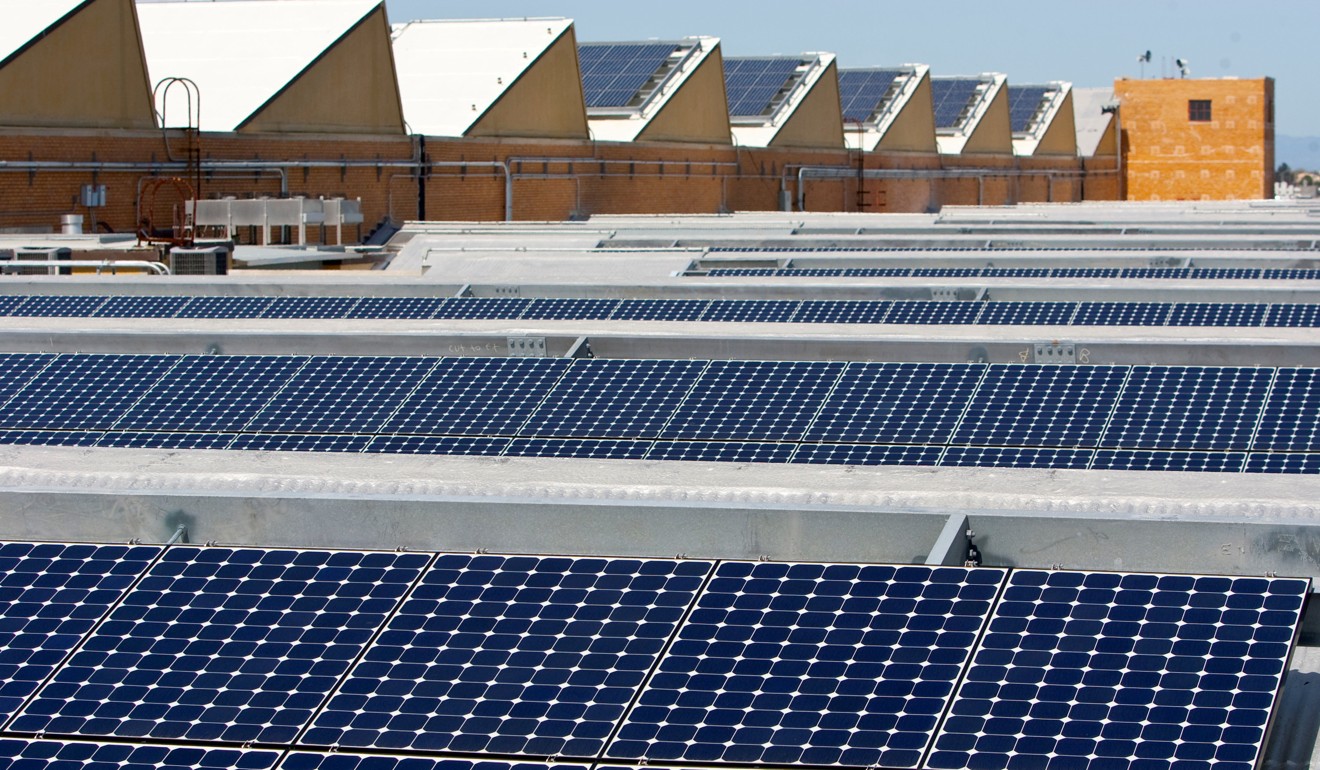
Shenzhen Energy is latest Chinese firm forced to give up on US acquisition after falling under scrutiny
Its subsidiary Shenmei Energy Investment had planned US$232 million purchase of projects run by Recurrent Energy Development, but was blocked by the Committee on Foreign Investment in the US
Shenzhen Energy Group, the southern Chinese city’s largest power producer, has been dealt a setback in its overseas expansion plans after failing to gain approval from US regulators for a planned major solar power acquisition.
Its US subsidiary Shenmei Energy Investment Holdings last year agreed to buy three firms owning projects being run by Recurrent Energy Development Holdings for US$232 million.
But it has now failed to obtain clearance from the US’ Committee on Foreign Investment (CFIUS), 10 months after it first was announced, Shenzhen Energy said in a filing to the Shenzhen Stock Exchange on Wednesday.
It is the latest in a string of US asset acquisitions by Chinese firms thwarted by CFIUS – an inter-department government body tasked with vetting deals supposedly in an effort to protect US national security interests.
The withholding of CFIUS consent comes amid escalating Sino-US trade tensions, and is also despite the solar farm projects involved actually already being backed by Nasdaq-listed Canadian Solar, a Chinese-financed solar panels manufacturer and major solar farm developer.
The deal is not considered as involving the deployment of what might be considered nationally sensitive technology.
The Trump administration has already proposed legislation to expand the CFIUS’ mandate to help meet the objectives of the President’s plan to restrict the transfer of US technology to China.
Despite multiple communications with CFIUS, the blocking has now prompted Recurrent to cancel the Shenzhen Energy purchase agreement, signed on October 11, 2017, it said.

“Since the company has not handed over any cash to the counter-party, the cancellation will not have a major impact on the company’s financial performance,” the filing added.
One of China’s regional government-backed power generators, Shenzhen Energy produces power from burning coal and natural gas, as well as harnessing wind, solar and hydro energy.
The three power plants owned by San Francisco-based Recurrent are in Rosamond, Tranquillity and Lemoore in California, according to a previous Shenzhen Electric filing in October.
All have signed contracts lasting 15 to 19 years to supply power to local buyers. They have combined annual generating capacity of 664 megawatts, and generated a total unaudited profit of US$1.13 million in the 12 months to March 31 last year.
Since the company has not handed over any cash to the counter-party, the cancellation will not have a major impact on the company’s financial performance
Various deals involving Chinese interests have already been ground to a halt by Trump on CFIUS’ suggestion including Chinese private equity firm Canyon Bridge Capital Partners' attempt to buy US chip maker Lattice Semiconductor for US$1.3 billion, and Ant Financial's bid to buy MoneyGram International for US$1.2 billion.
Ant Financial is an affiliate of Alibaba Group, which owns the South China Morning Post.
The White House has also proposed legislation that will require foreign companies that invest in, or form joint ventures with, certain US businesses, not only to agree to a review by CFIUS, but to pay the agency at least US$300,000 for the work.
Another proposal is that any transaction which seeks an equity holding of more than 10 per cent by an overseas business should now trigger mandatory CFIUS scrutiny, down from the previous 50 per cent.
Shenzhen Energy said in a statement on its website that it had been “vigorously” developing its overseas business under Beijing’s Belt and Road Initiative, which promotes Chinese corporate expansion in Southeast, Central and South Asia as well as the Middle East, Africa and Europe – all regions historically serviced by the ancient Silk Road trading routes.
The company owns a power plant in Ghana, for instance, that accounts for more than 15 per cent of the power shortage-inflicted West Africa nation’s entire energy supply.
It has also invested in a US$870 million hydropower project in Papua New Guinea which will come on stream in 2022 and make up just over a third of the Pacific nation’s total generating capacity.

